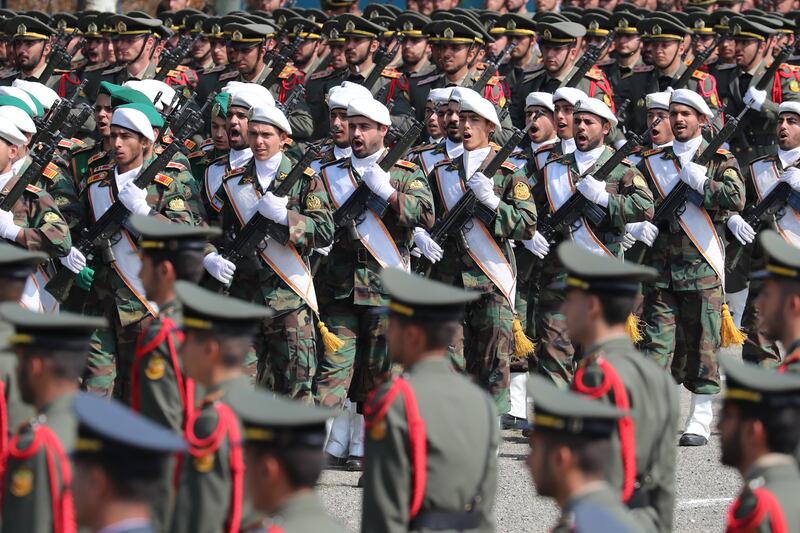UK’s Labour party will reform previous security rules if elected into power on July 4

Labour will designate the Islamic Revolutionary Guard Corps as a terror group if elected into power. EPA

Powered by automated translation

Iran’s revolutionary guard will be proscribed as a terror group by Labour under a new three-point plan to update the UK’s counter-terror strategy.
The Labour move breaks with the Conservative Party, which has held off designating the Islamic Revolutionary Guard Corps (IRGC) as a terror group over fears that it would damage diplomatic ties with Tehran.
The Labour manifesto, which was outlined this month ahead of next week’s general election, explicitly states that it would outlaw the IRGC in Britain, saying that threats from hostile states or state-sponsored groups were on the rise.
Shadow foreign secretary David Lammy and shadow home secretary Yvette Cooper are both understood to be in favour of the designation, which would effectively make it illegal for individuals to support or be a member of the group.
According to a report in The Telegraph, Labour has outlined a three-point plan to update the government’s current counter-terror rules, which it views as outdated.
The first aspect will allow a “bespoke” proscription mechanism will make it easier for “state-based actors” to be formally designated as terror groups.
New legislation is likely to be introduced to achieve this and will require lengthy deliberations with legal and security experts, the report adds.

Under the second aspect, the UK will also update Contest, a cross-government counter-terrorism strategy which was introduced in the wake of the September 11 attacks in America in 2001.
A third aspect will create a “joint cell” between the Home Office and the Foreign Office to work together on how to tackle state-based threats posing a risk in Britain.
The IRGC is a military group with its own army, navy and special forces that sit alongside its conventional forces. It was designated as a terror group by the US during the Donald Trump presidency.
The IRGC wields significant influence over Iran’s politics and has been blamed for destabilising the Middle East through its support for groups including Hamas and Hezbollah targeting Israel, and the Houthis in Yemen who have attacked Red Sea shipping.
Senior Tories including former leader Sir Iain Duncan Smith and ex-home secretary Suella Braverman have urged Prime Minister Rishi Sunak to proscribe the group as a terrorist organisation.
However, a dispute between the Home Office and the Foreign Office resulted in such plans being shelved for more than a year.
Dozens of plots to kill or kidnap Iranians on British soil have been foiled by UK authorities in recent years.
Incidents have included an attack on Iran International journalist Pouria Zeraati, who was stabbed by a group of three unknown assailants in Wimbledon, south London, on March 29.
British citizens, including Nazanin Zargari-Ratcliffe, have also been detained by Iranian authorities in actions which the UK government claimed were politically motivated.
Updated: June 26, 2024, 5:26 PM
